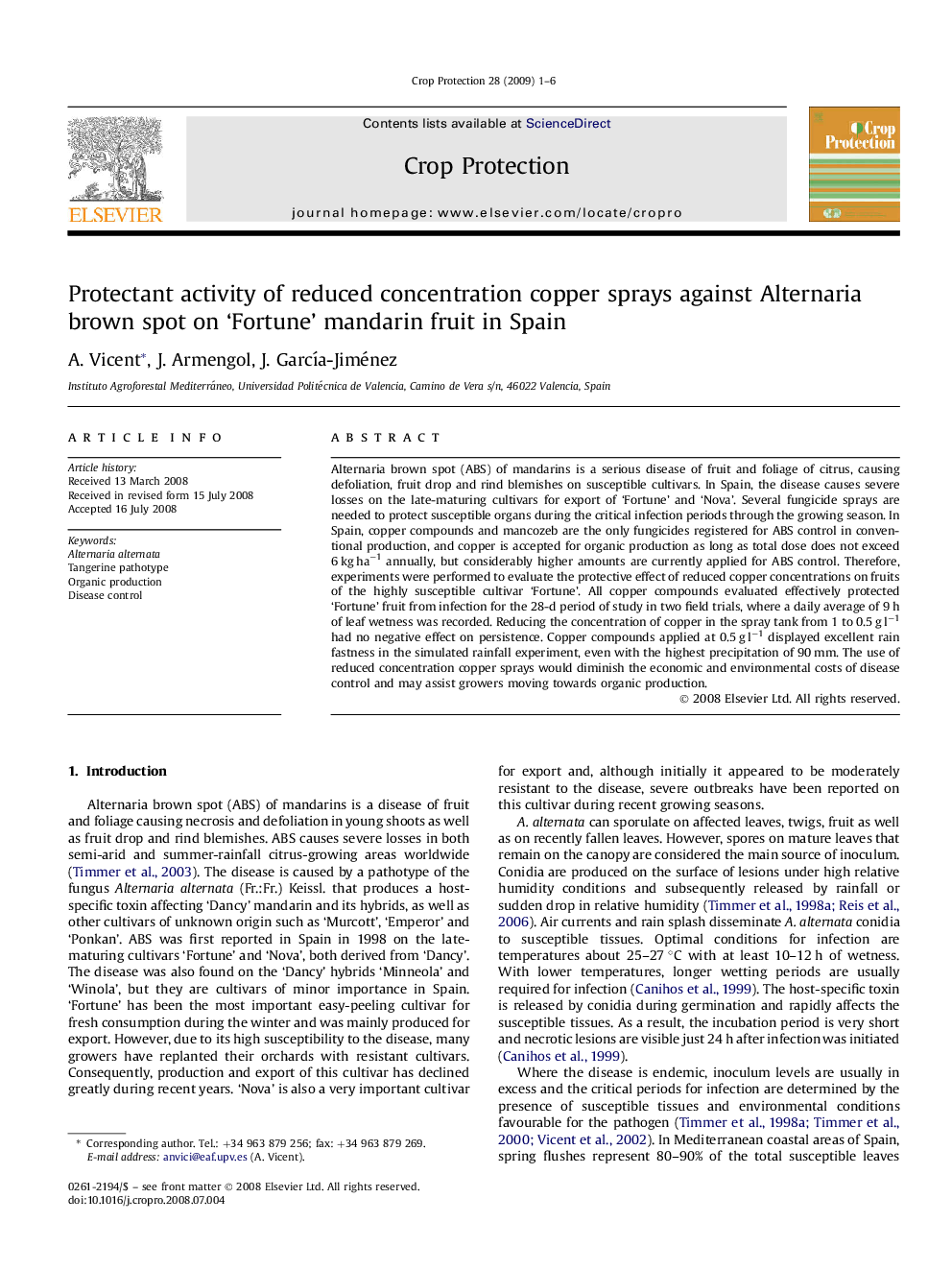| Article ID | Journal | Published Year | Pages | File Type |
|---|---|---|---|---|
| 4507537 | Crop Protection | 2009 | 6 Pages |
Abstract
Alternaria brown spot (ABS) of mandarins is a serious disease of fruit and foliage of citrus, causing defoliation, fruit drop and rind blemishes on susceptible cultivars. In Spain, the disease causes severe losses on the late-maturing cultivars for export of 'Fortune' and 'Nova'. Several fungicide sprays are needed to protect susceptible organs during the critical infection periods through the growing season. In Spain, copper compounds and mancozeb are the only fungicides registered for ABS control in conventional production, and copper is accepted for organic production as long as total dose does not exceed 6 kg haâ1 annually, but considerably higher amounts are currently applied for ABS control. Therefore, experiments were performed to evaluate the protective effect of reduced copper concentrations on fruits of the highly susceptible cultivar 'Fortune'. All copper compounds evaluated effectively protected 'Fortune' fruit from infection for the 28-d period of study in two field trials, where a daily average of 9 h of leaf wetness was recorded. Reducing the concentration of copper in the spray tank from 1 to 0.5 g lâ1 had no negative effect on persistence. Copper compounds applied at 0.5 g lâ1 displayed excellent rain fastness in the simulated rainfall experiment, even with the highest precipitation of 90 mm. The use of reduced concentration copper sprays would diminish the economic and environmental costs of disease control and may assist growers moving towards organic production.
Related Topics
Life Sciences
Agricultural and Biological Sciences
Agronomy and Crop Science
Authors
A. Vicent, J. Armengol, J. GarcÃa-Jiménez,
